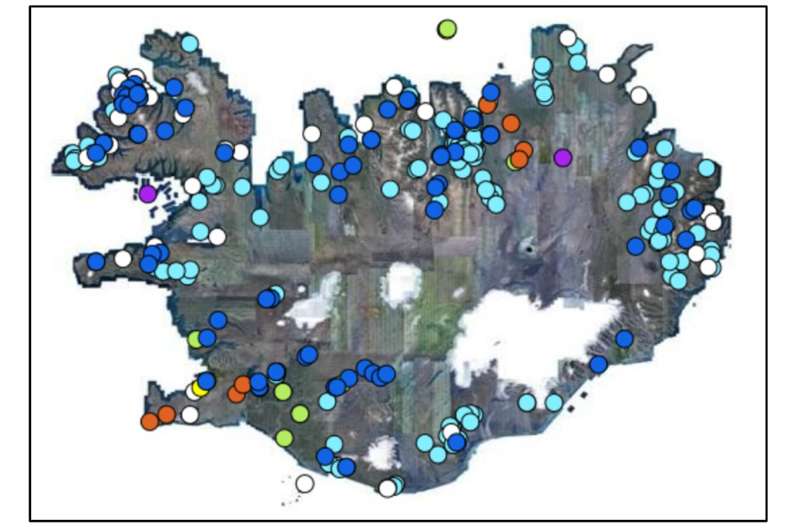This article has been reviewed according to Science X's editorial process and policies. Editors have highlighted the following attributes while ensuring the content's credibility:
fact-checked
proofread
Could Iceland feed Europe?

According to a new study led by Dr. Asaf Tzachor at Reichman University's School of Sustainability, the small country of Iceland can play a pivotal role in European food security, providing over 40 million Europeans with a safe, sustainable, and locally-produced protein source over the next decade, while mitigating over 700 million tons of CO2 emissions.
A new study, led by Dr. Asaf Tzachor at Reichman University's School of Sustainability, in partnership with environmental and nutritional scientists from Iceland, Denmark and the UK, shows that by allocating renewable energy from hydroelectric and geothermal sources to advanced, biological reactors cultivating cyanobacteria, Iceland can play a critical role in Europe's protein self-sufficiency aspirations.
Iceland could produce hundreds of thousands of tons of sustainable, high-protein biomass, to become fully protein self-sufficient, as well as a net-exporter of proteins to feed other Northern European countries.
The new study assesses the technical feasibility of different energy allocation scenarios to novel food production systems. In the most conservative scenario, with an allocation of 15% of it currently installed capacity, Iceland could be protein self-sufficient providing its projected 2030 population of 390,000 people with their protein requirements, and become a net-exporter of high-quality proteins.
In the most ambitious biomass production scenario, Iceland could support itself and contribute significantly to food security in Denmark, Finland, Lithuania, Latvia, Estonia, Jersey, Isle of Man, Guernsey and Faroe Islands, feeding millions per year, and tens of millions over the course of the coming decade.
At the moment, the European Union depend heavily on importation of protein-rich feed crops, such as soybean, to meet domestic demand. According to the EU, member countries must import 75% of their protein requirements, including 95% of soy cake consumption.
Dependency on third parties exposes European countries to protein supply chain disruptions, including institutional disturbances such as those experienced during the COVID-19 pandemic, as well as various risk factors, including plant pests, pathogens and alternations in weather patterns.
This renders European food security vulnerable, particularly to the cascading, acute and chronic impacts of climate change.
These concerns have moved the topic of protein self-sufficiency higher up the policy agenda in Europe, with initiatives such as the EU Protein Plan aiming to incentivize and accelerate the development of alternative protein sources, that are locally produced.
The new study shows the untapped, and considerable potential of Iceland to contribute to European protein self-sufficiency plans.
The study also emphasizes the additional environmental benefit, with each kg of high-protein biomass consumed from the Icelandic reactors instead of beef saving 0.315 tons of CO2 emissions.
Under the most ambitious scenario, production of alternative proteins in Iceland could save over 75 million tons of CO2 emissions, which equals 7.3% of Europe's cross-sector quarterly GHG emissions.
Dr. Asaf Tzachor, lead author of the study notes, "our intention was to stimulate thought, and stimulate action at the intersection of these consequential topics of food security, protein self-sufficiency, and climate action, highlighting one potent, readily available approach to achieve all three."
The work is published in the journal Foods.
More information: Asaf Tzachor et al, The Potential Role of Iceland in Northern Europe's Protein Self-Sufficiency: Feasibility Study of Large-Scale Production of Spirulina in a Novel Energy-Food System, Foods (2022). DOI: 10.3390/foods12010038
Provided by Reichman University




















